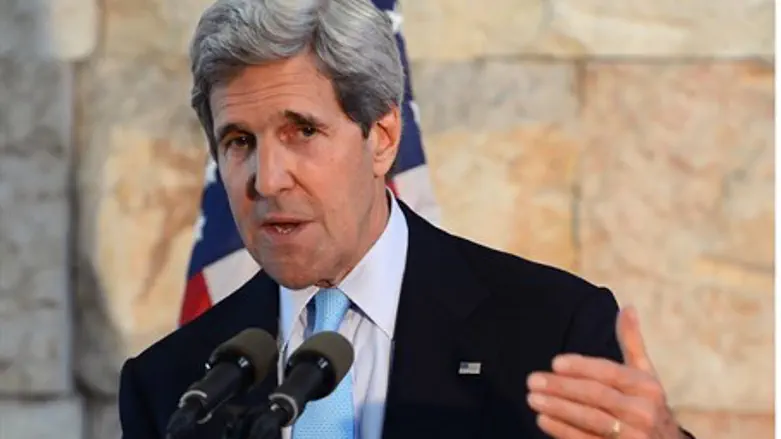
In what will be the highest-level talks between the United States and Iran since the 1979 revolution, U.S. Secretary of State John Kerry will meet with Iran's foreign minister on Thursday, Deputy National Security Adviser Ben Rhodes has confirmed.
Kerry and Foreign Minister Mohammad Javad Zarif will join their counterparts from the six major powers that are negotiating to contain Iran's nuclear policy, reported USA Today.
"We welcome Iran engaging seriously through that process given that it represents the international community's commitment to holding Iran accountable, but also being open to a diplomatic resolution," Rhodes said.
The meeting was initially announced by Catherine Ashton, the European Union foreign policy chief.
Ashton made the announcement after meeting, for the first time, with Zarif on the eve of the UN General Assembly in New York.
"What I saw today is energy and determination to move forward on our talks and many things flow from that," said Ashton, who will convene the group, according to a report in The Guardian.
She added that diplomats and experts from the negotiating group would meet then with an Iranian team next month in Geneva to talk about the details of a possible nuclear compromise.
In a post on his Facebook page, Zarif said Monday that the upcoming meetings in New York herald the start of interactions on problems and issues that will require time to resolve.
"The field of foreign policy needs sobriety, patience, wisdom and well-assessed and targeted measures and the pile of problems cannot be expected to be resolved by one or some meetings," Zarif wrote in his Facebook page Monday, according to USA Today.
"To reach successful and sustainable solutions, the two sides should be ready for constructive interactions based on equal footing," he added.
Iran has signaled several times over the past few weeks that it was willing to negotiate about its nuclear program.
Iran’s new president, Hassan Rouhani, who has been touted by the West as a moderate, has hinted that he is open to defrosting relations with the U.S., which were in deep freeze under the isolating leadership of his predecessor, Mahmoud Ahmedinejad.
Rouhani said several weeks ago that the time for resolving Iran's nuclear dispute with the West was limited, urging the world to seize the opportunity of his election.
He seemed to receive the backing of Iran’s Supreme Leader, Ayatollah Ali Khamenei, who signaled last week that he is in favor of flexibility in talks with the West, and said he’s not opposed to “correct diplomatic moves” with other countries.
U.S. President Barack Obama has responded to Rouhani’s remarks by exchanging letters with him. Obama wrote Rouhani that the United States is ready to resolve its nuclear dispute with Iran in a way that allows Tehran to show it is not trying to build weapons.
The American president has expressed a willingness to test whether Rouhani is serious when he says he wants to open a dialogue with the United States.
The comments have led to speculations that Obama and Rouhani would meet on the sidelines of the UN General Assembly, but the White House has denied that Obama has any intention of meeting Rouhani.
Israel has warned the world that Rouhani is a wolf in sheep’s clothing and would continue to develop Iran’s nuclear program while fooling the world with comments to present himself as a moderate.
